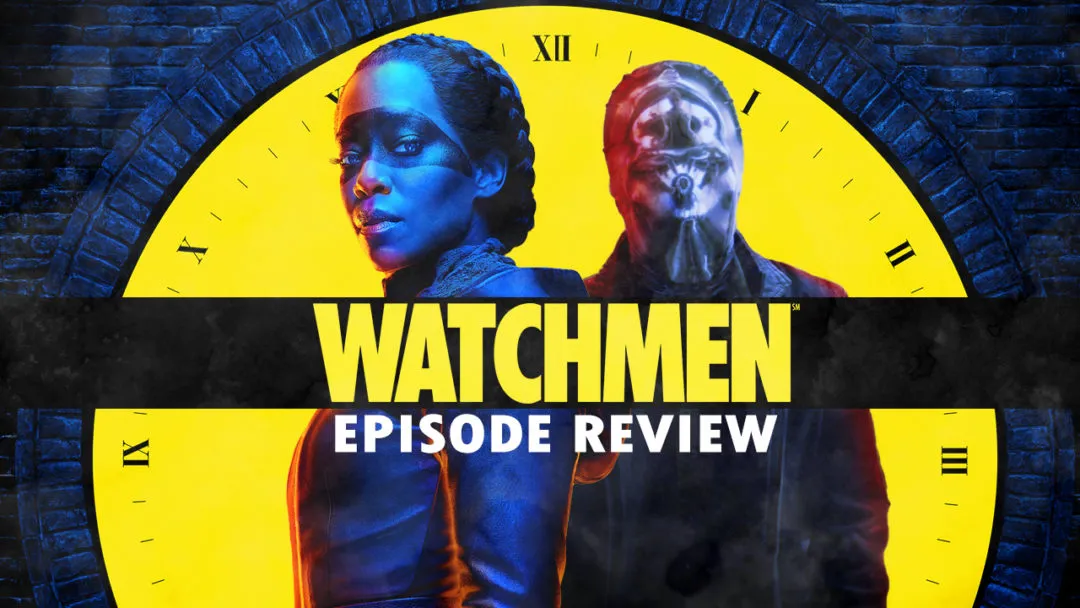This review contains spoilers for Watchmen, episode 2, “Martial Feats of Comanche Horsemanship.”
Second episodes can be tricky to nail. While a premiere’s main goal should be to sell the audience on series, the second episode has to keep their attention. Plenty of shows run out of steam shortly after their pilots because they could entice people with a premise and cast but failed in the execution. Watchmen’s second episode, “Martial Feats of Comanche Horsemanship,” had a lot to live up to, and while it still stands strong, a few weaknesses have started to develop that may harm the show later down the line.
“Martial Feats of Comanche Horsemanship” may deal with the immediate aftermath of Chief Judd Crawford’s murder and the police’s reaction to it, but the episode belongs to Regina King. Every scene that King is present in shows her in complete control, with the other characters bowing to her authority. Early on, Tulsa police interrogator Looking Glass (Tim Blake Nelson of O Brother, Where Art Thou? and The Ballad of Buster Scruggs) pushes King’s Sister Night aka Angela Abar about what happened to Judd, but his normal cold demeanor is challenged and somewhat broken by King’s ferocity.
With a power vacuum in the Tulsa Police Department, the question is who will lead the force against the white supremacists of the 7th Cavalry. Will the quietly intense Looking Glass take charge, or will Red Scare (Andrew Howard) continue to lead police raids on suspected 7th Cavalry members in the rural white neighborhood of Nixonville?

While there was some forward momentum on the main plot, most of the episode was spent fleshing out King’s character. A flashback shows how there’s some mystery to how she survived the White Night, a coordinated attack by 7th Cavalry members on police officers and their families. Judd was the first person she saw after regaining consciousness in the hospital, but this episode calls into question his motives by showing he may have been a secret KKK member. Does that mean that he had some connections with the 7th Cavalry, and if so, are there moles in the police force? It seems likely these developments will only heighten the show’s race relations drama.
The series is attempting to mirror the Watchmen comics’ focus on simultaneously fleshing out its world, plot, and character backstories. It’s clear that events are happening in the background even if they’re only shown in seemingly minor minor scenes. The supplemental materials that HBO is putting out after every episode are also helping to build up the world.
While the premiere did briefly introduce us to the mysterious Will Reeves (Louis Gossett Jr. of Roots and An Officer and a Gentleman), he makes his official introduction to Angela by claiming to have murdered Judd. That might seem dark, but Gossett Jr. actually adds a well needed dose of levity to the proceedings, casually joking how he’s psychic and then breaking out of Angela’s bakery to grab a snack and return to her custody because he wants to keep talking. Most of the episode centers on the back-and-forth between him and Angela, shifting the show’s tone from the premiere’s political thriller to a murder mystery more in line with the Watchmen comics.

It’s slowly becoming apparent that one of the show’s weakest elements may be its overall aesthetic. Aside from some standout visuals given to the “American Hero Story” show within a show and the costume designs of Sister Night and the rest of the masked officers, the rest of the show feels muted. The color palette is mostly filled with grays and deep blues with only splashes of color. There’s nothing that makes this story scream Watchmen visually.
The callbacks to the original comic work at cementing the show’s status as a sequel, but the older versions of its original characters aren’t as strong as they could be. Jeremy Irons’ Adrian Veidt (who is still unnamed for some reason) has an extended sequence where he has his numerous clone servants put on a play. Irons is wonderful as always, though it’s still unclear what his exact function will be in the series. Veidt was one of the comic’s most prominent characters, but he seems to just be here out of obligation. While his posh demeanor is charming, his scenes are so far removed from the drama in Tulsa that they stop all forward momentum.
Watchmen is beginning to expand its scope beyond Tulsa’s race relations, creating new mysteries and dropping little twists on current ones. “Martial Feats of Comanche Horsemanship” succeeds in fleshing out its world and main characters, though side characters like Looking Glass could use more time in the spotlight. After a second episode failed to raise any big concerns, my main question for the series has gone from “Will it work?” to “Will it end on a satisfying note?”






Published: Oct 28, 2019 03:03 pm